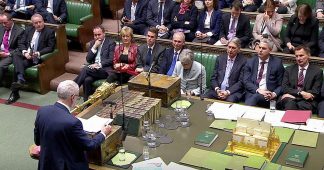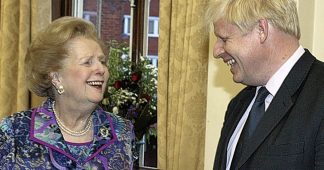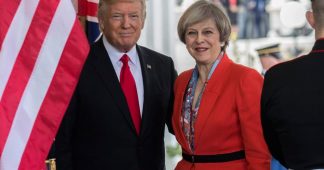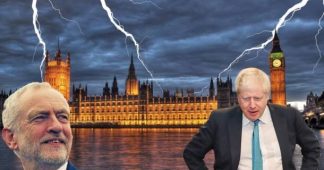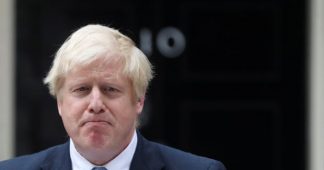How the right’s radical thinktanks reshaped the Conservative party
In the wake of the Brexit vote, ultra free market thinktanks have gained exceptional access to the heart of Boris Johnson’s government.
By Felicity Lawrence, Rob Evans,
David Pegg, Caelainn Barr and Pamela Duncan
Nov.29,2016
When Boris Johnson assumed office as prime minister in July 2019 and proceeded, without the mandate of a general election, to appoint a cabinet that was arguably one of the most rightwing in post-second world war British history, many commentators called it a coup. The free market thinktank the Institute of Economic Affairs felt self-congratulation was more in order, however. “This week, liberty-lovers witnessed some exciting developments,” the IEA said in an email to its supporters. The organisation, whose mission is to shrink the state, lower taxes and deregulate business, noted that 14 of those around the Downing Street table – including the chancellor, Sajid Javid, the foreign secretary, Dominic Raab, and the home secretary, Priti Patel – were “alumni of IEA initiatives”.
The IEA had good reason to boast about its influence. Just a few years earlier, on the occasion of its 60th birthday in 2015, Javid had declared that it had “reflected and deeply influenced my views, helping to develop the economic and political philosophy that guides me to this day”. In a speech to the IEA the same year, Raab also enthused about the organisation’s effect on his younger self. A few years back, he told the audience, he had been on a beach in Brazil. He’d had a couple of drinks, and had gone in to the sea to mull over an idea: that New Labour had “eroded liberty” in Britain and created a “rights culture” that had fostered a nation of idlers. Lost in thought, the tide had dragged him far from his starting point, and back on the beach, he had trouble locating his family among all the “scantily clad Brazilians”. On stage, he thanked the IEA for helping him develop this idea, which became the starting point for the book Britannia Unchained, an anti-statist tract, co-written with other MPs who would go on to join Johnson’s new cabinet – Patel; Elizabeth Truss, now trade secretary; Kwasi Kwarteng, business minister; and Chris Skidmore, then health minister.
Read more at https://www.theguardian.com/politics/2019/nov/29/rightwing-thinktank-conservative-boris-johnson-brexit-atlas-network
